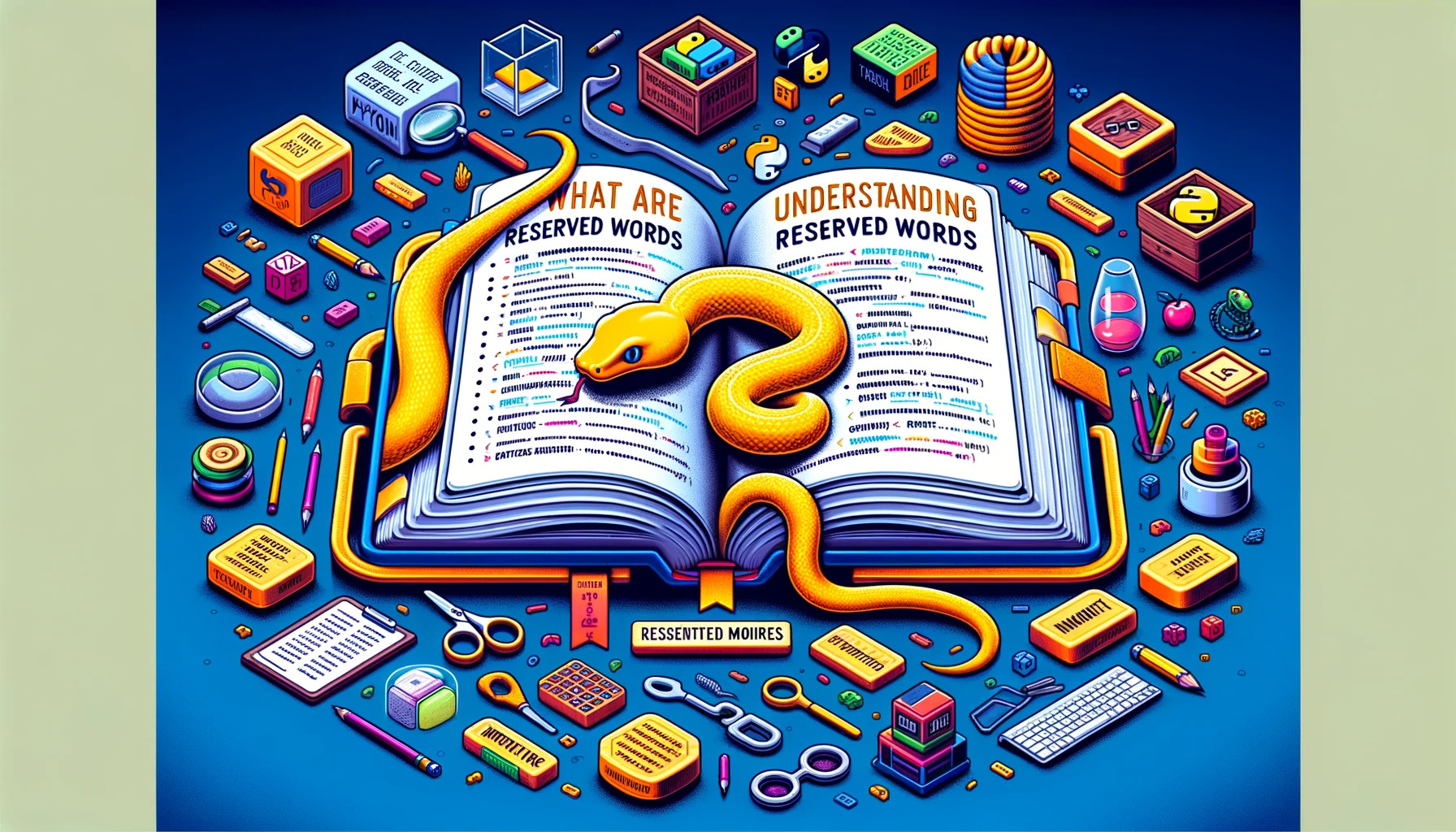Understanding Reserved Words in Python: A Guide for Beginners
- Introduction
- What are Reserved Words?
- List of Common Reserved Words
- Why Reserved Words Matter
- Best Practices for Using Reserved Words
- Conclusion
Introduction
Python, known for its simplicity and readability, is a popular programming language among developers. A fundamental aspect of Python, like in any programming language, is its set of reserved words or keywords. These are words that have a special meaning in the language syntax and are integral to its structure.
What are Reserved Words?
Reserved words, also known as keywords, are words in Python that are part of its syntax and are reserved for specific operations. These words cannot be used as identifiers, such as variable names, function names, or any other identifiers. They are standard across all Python versions, case-sensitive, and must be used exactly as they are defined.
List of Common Reserved Words
- Data Types:
int,float,bool,str,list,tuple,dict,set - Control Flow:
if,else,elif,while,for,break,continue,return,yield - Function and Class Definitions:
def,class,lambda - Importing Modules:
import,from,as - Exception Handling:
try,except,finally,raise,with,assert - Other Keywords:
in,not,is,and,or,None,True,False,global,nonlocal,pass,del
Why Reserved Words Matter
They form the very structure of Python programs, defining the rules and order of code. Understanding and correctly using reserved words helps prevent syntax errors and contributes to the readability and maintainability of code, a core philosophy of Python.
Best Practices for Using Reserved Words
Never use reserved words as identifiers to avoid conflicts and unexpected behaviors. Keep up with the latest Python documentation to stay informed about any new reserved words or changes.
Conclusion
Reserved words in Python are the building blocks of the language’s syntax and functionality. A clear understanding of these keywords is crucial for writing effective Python code. As Python continues to evolve, staying informed about its reserved words is vital for both beginners and experienced programmers alike.
